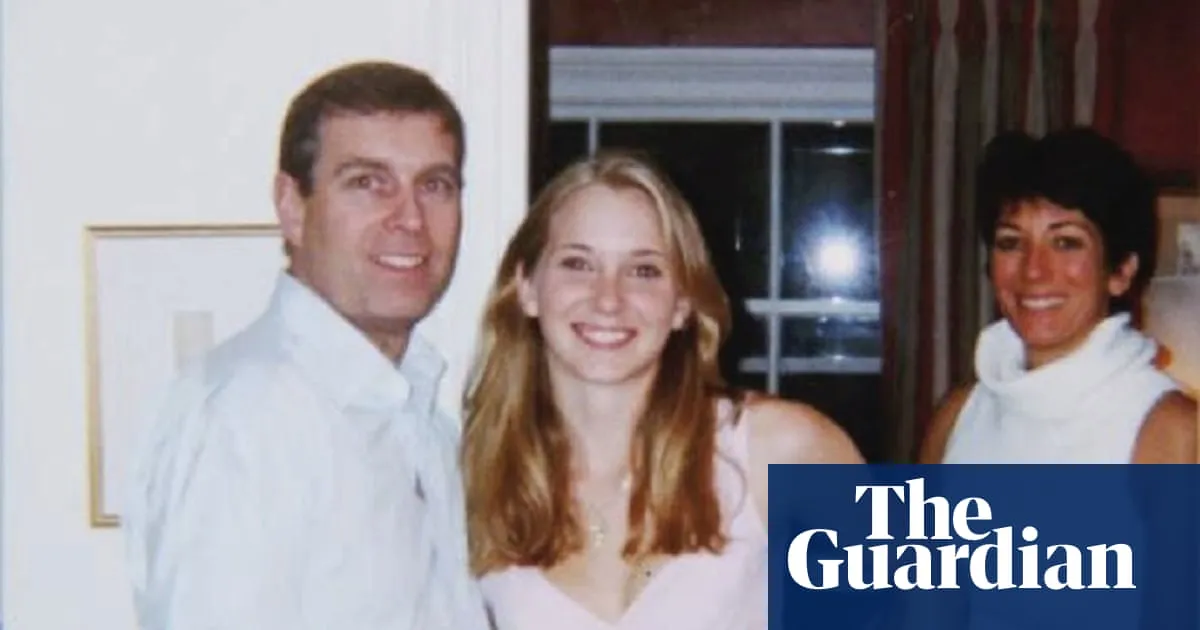
The Metropolitan Police are currently investigating alarming claims that Prince Andrew solicited his taxpayer-funded close protection officer to gather private information about Virginia Giuffre. This request reportedly occurred just hours before a notorious photograph of Andrew with Giuffre surfaced, raising serious ethical concerns regarding the use of police resources. Leaked emails have revealed that Andrew allegedly provided his bodyguard with Giuffre’s date of birth and her confidential US social security number, prompting a government minister to label these actions as “deeply concerning.”
On Sunday, Ed Miliband, the Energy Secretary, emphasized the need for thorough investigation into these allegations, stating that such behavior is “absolutely not the way that close protection officers should be used.” The Mail on Sunday reported that Andrew communicated with Ed Perkins, then the queen’s deputy press secretary, in 2011, indicating that he had tasked one of his close protection officers to find out information about Giuffre. In his messages, Andrew claimed to have provided the officer with Giuffre's personal details, including her social security number, and suggested she had a criminal record in the United States. However, Giuffre's family has firmly stated that she had no criminal record.
In response to the emerging reports, a spokesperson for the Metropolitan Police confirmed: “We are aware of media reporting and are actively looking into the claims made.” Virginia Giuffre, who tragically took her own life earlier this year, alleged that she was coerced into sexual encounters with Andrew on three occasions when she was 17, while being trafficked by Jeffrey Epstein and his associate, Ghislaine Maxwell.
As scrutiny intensifies over Andrew's connections to Epstein, new revelations have surfaced suggesting he was introduced to a second victim of the disgraced financier. On Friday, Andrew took significant steps by renouncing his royal titles, including that of the Duke of York, following the loss of his HRH title and his status as a “working royal.” In a statement, he affirmed that this decision was made after discussions with the king, asserting, “With His Majesty’s agreement, we feel I must now go a step further. I will therefore no longer use my title or the honours which have been conferred upon me. As I have said previously, I vigorously deny the accusations against me.”
Despite relinquishing some titles, Andrew retains the dukedom, which can only be revoked through an act of parliament. As a prince, this status can only be altered if a letters patent is issued by the king. Giuffre’s family has renewed their appeals for King Charles to strip Andrew of his “prince” title. Sky Roberts, Giuffre’s brother, recently expressed on BBC Two’s Newsnight that his sister would have been “very proud” of the developments concerning Prince Andrew, but he urged the king to take further action by removing the “prince” from Andrew’s title. He stated, “I think anybody that was implicated … should have some sort of responsibility and accountability for these survivors.”
When asked about potential legislative support for stripping Andrew of his titles, Miliband indicated that the government would defer to the royal family’s judgment. “The royal family will have to make its own decisions about what other steps can be taken,” he said, pointing out that the royal family previously expressed a desire to avoid burdening parliament with these matters. There are numerous pressing issues currently under discussion in parliament.
Recently, The Guardian published extracts from Giuffre’s posthumous memoir, revealing her first encounter with Prince Andrew. In her account, she described him as “entitled” and noted that he “believed having sex with me was his birthright.” These revelations continue to fuel public discourse about the allegations surrounding Prince Andrew and his ties to Epstein’s notorious network.